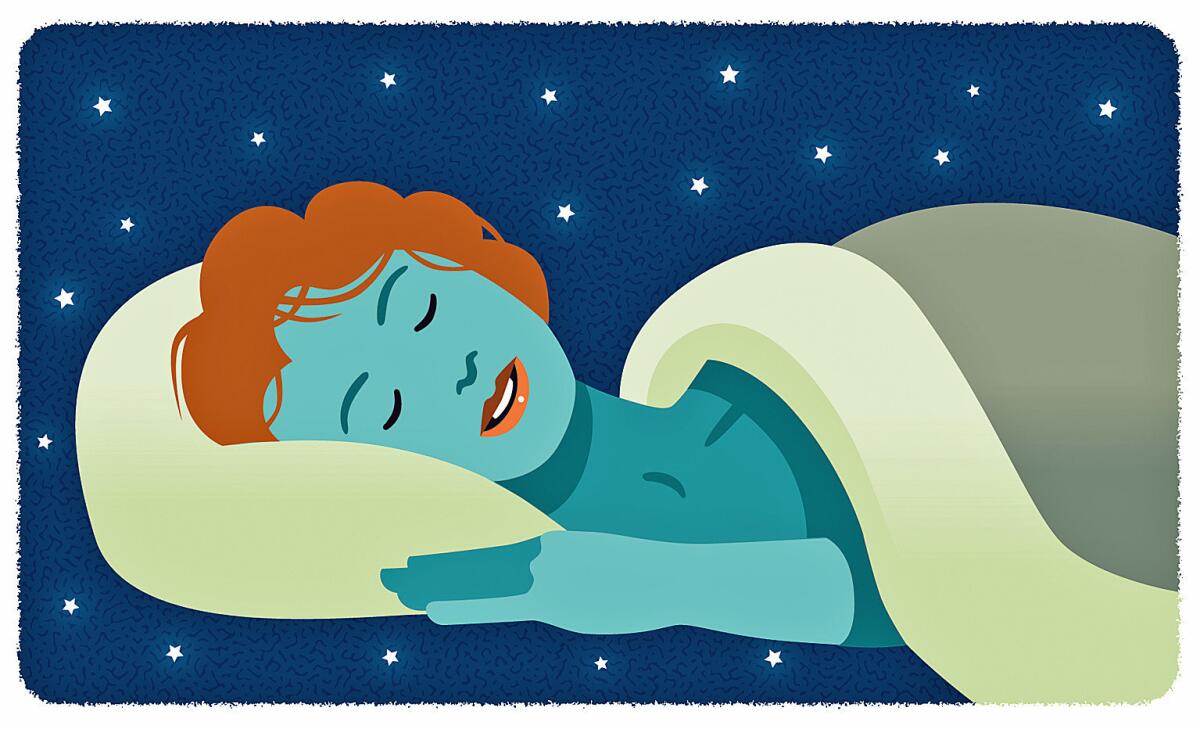Newsletter: Trouble sleeping? Maybe it’s time for a new pillow

- Share via
I’m Business columnist David Lazarus, with a look today at a subject near and dear to most of us: a good night’s rest. More to the point, pillows.
I don’t mind saying, I’ve never been a good sleeper. I toss. I turn. Sometimes I wake up utterly exhausted. According to the Centers for Disease Control and Prevention, as many as 70 million Americans “suffer from sleep disorders or deprivation.”
Experts talk about the need for “sleep hygiene,” which basically means practicing common-sense moves such as limiting daytime naps to no more than 30 minutes, getting some exercise and avoiding stimulants such as caffeine or nicotine before bedtime.
For some people, the solution is sleeping pills. An estimated 4% of U.S. adults are taking prescription meds to help them sleep at any given time, the CDC says. That’s 10 million people.
But an artist is only as good as his tools, so the first thing a poor sleeper wants to do is think about their mattress and pillow. And that’s why I sat up and took notice when Consumer Reports unveiled the results recently of its first-ever pillow tests.
The testers used a pressure mat “to analyze roughly 1,600 pressure points and note areas where the pillow is too soft or too firm around the head or doesn’t offer adequate support.”
They also looked at “how well pillows hold their shape by placing an evenly distributed 225-pound weight on each pillow in a room set to 98.6 degrees to mimic the human body and 80% humidity to mimic sweat for 96 hours.”
The bottom line: You get what you pay for.
“Based on our tests, the less expensive pillows made from cheaper materials don’t perform as well as pillows that cost a bit more,” said Chris Regan, who oversaw the pillow investigation.
OK, so which pillows do they recommend? The one I use, the Coop Home Goods Premium Adjustable Loft pillow, available from Amazon for about $60, made CR’s list.
“Our panel of testers like the look and feel of this pillow,” Consumer Reports concluded. “The only test where this pillow falls slightly short is in how well it allows air to circulate: It sleeps slightly warm, so your head might feel a little sweaty at night.”
I was surprised the $50 My Pillow Premium — the one you see advertised all the time on TV — made the list. The testers said “the foam chunks inside this My Pillow sometimes shift and bunch up while sleeping on it.” But it received top marks for breathability, “meaning it dissipates moisture well and keeps your head cooler at night.”
One of the pricier pillows recommended is the nearly $100 Sealy Memory Foam Gel, which the testers said is “great if you sleep on your side, but not ideal if you sleep on your back -- it’s pretty firm, and doesn’t really allow your head to sink into the pillow.”
My advice: Do your homework. First, determine if you’re a side sleeper or a back sleeper, then hunker down for some Googling and reading, because there’s lots of info out there.
Don’t commit to a single brand or design. I had to go through almost half a dozen pillows before I found one that relieved my sore neck and shoulders. Many manufacturers allow for returns within a certain period of time. Take advantage of that.
Enjoying this newsletter? Consider subscribing to the Los Angeles Times
Your support helps us deliver the news that matters most. Become a subscriber.
Now, here are a couple of recent stories from our pages worth highlighting:
Meatless burgers: El Segundo’s Beyond Meat, whose initial public offering rocked Wall Street last year, revved up an astounding cultural shift that has put bean-based burgers on the menu at fast-food outlets. Its 48-year-old founder, Ethan Brown, says he just wanted to give meat eaters a better choice.
Boss fight: A new campaign launched by one of the nation’s largest labor unions — and spearheaded by one of the leading video game industry activists in Southern California — aims to organize video game and tech companies. The Campaign to Organize Digital Employees (CODE for short) is intended to address “100-hour weeks for months on end.”
Recalls
Subaru is recalling nearly 500,000 cars for faulty airbags that can explode and shoot metal projectiles throughout the vehicle (a bad thing).
Libbey Glass recalled more than 44,000 milk bottles because “the bottles can break unexpectedly during use,” posing a danger of laceration.
Spare change
All that pillow talk naturally creates a need for songs about sleep. It’s a tough choice, considering the Beatles, the Everly Brothers, Roy Orbison and Fleetwood Mac all have offerings. I was going to pick this classic from the Chordettes. But then I started humming this one from the Tokens and called it a day.
Stay in touch
Let me know what you think of the newsletter. My email is david.lazarus@latimes.com, or you can find me on Twitter @Davidlaz. Also, tell all your pals to join the party.
Until next time, see you in the Business section.
Inside the business of entertainment
The Wide Shot brings you news, analysis and insights on everything from streaming wars to production — and what it all means for the future.
You may occasionally receive promotional content from the Los Angeles Times.




